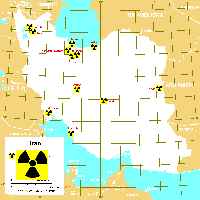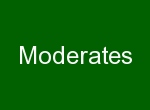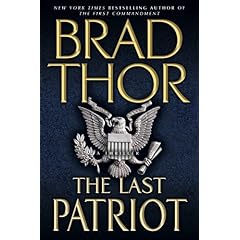Finsbury Park: Inside the British Jihad [Violence to 'restore the Caliphate', Mullah: It's OK to kill non Muslims for no reason]
Global Politician, NY
Stepping off the subway at Finsbury Park, the change in scenery could not have been more acute. Just an hour earlier, I had been awed by the grandeur of Big Ben, towering over the British Houses of Parliament. It is the symbol of the England in our history books: a beacon of liberty, tolerance, and stability.
Finsbury Park is different. Small shops and ragged apartments line the streets of this working class area of North London. More pronounced than the socioeconomic inequality is the cultural discrepancy. Grocery stores feature Middle Eastern foods and advertisements for cheap phone calls to the East while women clad in veils and burkas stroll with their young children wearing kufis. As Christopher Hitchens remarks of Finsbury Park in the June 2007 issue of Vanity Fair, “Returning to the old place after a long absence, I found that it was the scent of Algeria that now predominated.”1
After a short walk from the subway, I spotted a building at the corner of St. Tomas’ Road with a crescent moon and star at its peak. I walked up the steps to the mosque and opened the door with a bit of trepidation. A clean-shaven young man named Faisal welcomed me in with a cheery smile. Explaining that I was a student from the United States, he inquired, “Have you heard of this mosque before?” I had. With a dismayed look, Faisal replied in broken English “Not good things, I bet.”
Throughout the 1990s and early 2000’s, the Finsbury Park Mosque became a symbol of Britain’s problem with radical Islam and the eerie face of “Londonistan.” The mosque was conceived at the Prince of Wales’ request. King Fahd of Saudi Arabia donated over 2.3 million pounds to construct the building, which was designed to serve the large Bangladeshi community of North London. From 1997 until his dismissal in 2003, however, the fiery Egyptian-born preacher Abu Hamza al-Masri took over as the mosque’s imam. Hamza’s notoriety extends beyond his eye-catching if unfashionable look: an opaque eye and right hook, both consequences of his involvement with the Mujahideen in the late 1980s.2
Hamza rose to prominence on the British Islamist scene, preaching a message of jihad and anti-Semitism. “Killing of the Kaffir (non-believers) for any reason, you can say it is OK, even if there is no reason for it.”3 The “blasphemous, treacherous and dirty” Jews rank high on Hamza’s list of targets. In fact, they are the reason “why Hitler was sent into the world.”4 He touted suicide bombing as an effective means of waging jihad. The ultimate goal, he said, is to see “The Khalifa sitting in the White House, ruling from there like the Prophet Mohammed said that Allah… told him that the whole earth, it will be for Muslims, booty for Islam.”5 After the 9/11 attacks, Hamza declared his support for al-Qaeda. He also led the British-based group Supporters of Sharia (SOS), which seeks to re-establish the Caliphate. According to the SOS website, “Muslims and non-Muslims are being oppressed throughout the world. SOS is one of the organizations struggling to remove this oppression created by man-made laws.”6 Beyond propagating such fighting words, the mosque featured Kalashnikov AK-47 training and served as a base for shipping telecommunications equipment and medical supplies to fellow jihadists in Pakistan.7
Hamza’s activity at Finsbury Park attracted nothing less than an all-star lineup of terrorists:
* Richard Reid — The British-born terrorist who attempted to detonate a shoe bomb on a trans-Atlantic flight from Paris to Miami in 2001.8
* Zacarias Moussaoui — The French Moroccan who earned the moniker, “20th hijacker” for his role in the 9/11 attacks. To date, Moussaoui is the only person tried in the United States for the 9/11 plot. He claims that while he was not part of the 9/11 attacks, he was involved in a wider conspiracy to attack the White House. Moreover, Mousaoui maintains that Osama bin Laden personally instructed him to crash planes into American buildings.9
* Kamel Bourgass — The Algerian convicted last year of a plot to manufacture the deadly poison ricin. Bourgass stabbed Detective constable Stephen Oake to death and injured three other officers while attempting to escape arrest.10
* Feroz Abbasi — London-native who worshiped at the mosque before Hamza sent him to train at terrorist camps in Afghanistan. Abbasi was detained at Guantanamo.11
* Abu Doha — Algerian who was arrested in February 2001 for trying to leave England for Saudi Arabia on a forged passport. He is also fighting extradition to the United States for his involvement in the “millennium plot” to blow up an airport in Los Angeles. Moreover, bin Laden granted him permission to establish the Khalden terrorist training camp in Afghanistan.12
* Rabash Kadre — Took over Abu Doha’s network after Doha was detained. British authorities are currently holding Kadre in prison for a plot to blow up a Christmas market in Strasbourg.13
* Nizar Trabelsi — Tunisian ex-footballer jailed in Belgium for plotting to attack the Kleine Brogul NATO airbase.14
* Djamel Beghal — Recruited Reid, Moussaoui, and Trabelsi for suicide missions. Jailed in France over an alleged plot to attack the American Embassy in Paris. Beghal was so extreme that Osama bin Laden labeled him “over the pale.15
* Kamel Rabat Bouralha — Algerian-born British citizen. Served as a top aide to Chechen terrorist Shamil Basayev, who coordinated the Beslan attack of 2004.16
Despite ominous signs, British authorities’ were slow in confronting Hamza or investigating the mosque’s activities. After Hamza praised the murder of fifty-eight European tourists at Luxor in 1997, Egypt branded Britain a hotbed of terrorism and issued a “Call to Combat Terrorism.” Of its fourteen most-wanted terrorists, seven were based in Britain. The following year, eight British Muslims were arrested and convicted in Yemen for plotting terrorist attacks against British targets in Yemen. The prosecution disclosed that Hamza had masterminded the plot from the Finsbury Park mosque. Though he denied his involvement, Hamza admitted that his son and godson were coordinators in the attack. Ignoring the warnings of Yemenis officials, the British did not move against Hamza.17
The seeming indifference to Islamist violence was not an isolated lapse; it represented one act in the Brits’ larger pattern of inaction. Over the years, the governments of India, Saudi Arabia, Turkey, Israel, France, Algeria, Peru, Yemen and Russia, among others lodged complaints about terrorist operations in Britain. In response, Britain refused a string of requests to extradite suspected terrorists including:
* Morocco’s request to extradite the man who planned the May 2003 attacks, which killed forty-five. He was the Founder of the Moroccan Islamic Combatant Group, which the United Nations cited as a terrorist network connected to al-Qaeda with sleeper cells preparing a bombing campaign in multiple European cities.
* A Spanish request for the extradition of Abu Qatada, an al-Qaeda terrorist operating in London, on whom the French had passed information to the British.
* Saudi Arabia’s request to extradite Dr. Mohammed al-Massari, suspected of launching attacks in Saudi Arabia and establishing al-Qaeda’s London office.
* France’s request for Rachid Ramda suspected of organizing a series of bombings in Paris in 1995. (Britain allowed this extradition in 2005).18
To a certain extent, British softness against radical Islam can be attributed to a pre-9/11 naiveté of the terrorist threat. Yet there is also a more sinister explanation: a tacit bargain between British authorities and radical Islamists operating in the country. The jihadists were granted free reign so long as they did not attack England. In the words of a former British Special Branch security officer, “There was a deal with these guys. We told them if you don’t cause us any problems, then we won’t bother you.”19 Al-Qaeda leader Omar Bakri Mohammed similarly testified to the pact. Asked in 1998 why Islamists never attacked Britain, he replied, “I work here in accordance with the covenant of peace which I made with the British government when I got asylum…. We respect the terms of this bond as Allah orders us to do.”20 But following the 9/11 attacks, British aid in the US-led wars in Afghanistan and Iraq, and the 7/7 terrorist attacks, the arrangement has unraveled.
In January 2003, British authorities confronted the Finsbury Park Mosque. One-hundred fifty policemen equipped with riot gear and guns (a rarity in Britain) broke through the front door of the mosque with a battering ram. The raid was part of an investigation into a suspected plot involving ricin poison. Still, the British continued to dither. Even during the raid, British police acted on the advice of their Muslim colleagues by covering their shoes and avoiding intrusions into prayer services, in deference to mosque sensibility.21 They did not arrest Hamza as part of the raid. On the contrary, Hamza continued to preach to thousands of followers every Friday in front of the mosque. The events caused such a ruckus that British taxpayers were forced to foot the bill to keep at least twelve officers on guard.22
Hamza’s reign came to an end in 2004. The United States began to seek Hamza’s extradition for his alleged role in trying to establish a “terrorist training camp” in Oregon. British authorities in turn convicted him on eleven of fifteen offenses for inciting murder and racial hatred, and possessing an encyclopedia of Afghan Jihad, which lists Big Ben, the Eiffel Tower and the State of Liberty as possible targets for attack. After serving his sentence in Britain, Hamza will be eligible for extradition to the United States.23
Since the 2003 raid, the Muslim Association of Britain has used legal means to take over the mosque and install a more moderate leadership. Signaling a new direction, they changed the name of the mosque to the North London Central Mosque in February 2005. Four months later, the new Imam publicly called for help in catching the London subway bombers.24
After removing my shoes at the front-door, Faisal agreed to let me tour the mosque with him. “Everything here has changed,” he assured me as we quietly walked up the stairs, “We are reaching out to the rest of the community, the churches, and MPs [members of Parliament] to show that things have changed.” As evidence, he pointed to a course on Islam the mosque now offers for non-Muslims.
On the second floor, where Hamza once delivered sermons to packed crowds of worshipers, children were gathered in small circles devoutly studying the Koran. Faisal explained that activity at the mosque is flourishing, and has become a welcoming hub for first-generation immigrants adjusting to life in Britain. The numbers seem to support his claim; since the
Management change, attendance at the mosque has tripled.25
Still, all is not rosy at the mosque. Despite efforts to project a moderate image, the new board of trustees is marked by shady leaders. Mohammed Kassem Sawalha, for instance, one of the current trustees, is president of the Muslims Association of Britain. According to US court documents, Sawalha was “in charge of Hamas terrorist operations within the West Bank in the early 1990s.” Perhaps this explains the large advertisement on the front-door of the mosque urging Muslims to “protest the Zionist occupation of Palestine.” The British establishment has reacted cautiously. Mohammed Sarwar, MP for Glasgow Govan and trustee of the mosque, says that Sawalha would remain and claims that he was happy with the way the mosque is operating. Metropolitan Police chief superintendent Barry Norman seems equally satisfied: “I am aware of the background, but if I took the view that I’m not working with this or that person I’d end up spending my whole life in my office.”26
Finsbury Park mosque should serve as a clarion call to policymakers on both sides of the Atlantic. It reveals that the War on Terrorism is not simply a regional conflict. As Finsbury Park’s guest-list reveals, many of most vile terrorists exploited the West’s liberties to launch attacks on the free world. Finsbury Park is the logical consequence of Britain’s strategy of appeasement and complicity in the face of the global menace. A successful approach to combating global Islamism must recognize the jihadist threat within the West and take seriously the public statements of radical leaders who advocate terrorism as a means to reestablish the Caliphate. There can be no compromise with the radical elements within Islam.
Incidentally, France, for all its meekness, has embraced some of the most aggressive domestic anti-terror efforts in the West. Particularly since suffering a wave of bombings in 1986, the French Directorate of Surveillance of the Territory has taken the lead in implementing harsh policies to check radical elements within its borders. The law enforcement effort relies heavily on preemptive arrests, racial profiling, broad prosecutorial powers, and an effective domestic intelligence-gathering network.27 While several French policies against traditional Islamic cultural practices may be excessive, the British should consider looking across the Channel to modify its strategy.
The Finsbury Park incident also suggests a role for the United States. Despite Hamza’s unsavory resume, British authorities did not move to arrest him until the United States sought his extradition. While homegrown terror is prevalent throughout the West, the situation is particularly acute in England. Through both unilateral legal action as well as shared intelligence with its allies, the United States can pressure the oft reluctant Brits to move against homegrown Islamists. Perhaps this may even strengthen the “special relationship” in the ongoing War on Terror.
Positively, burgeoning activity at the mosque since the leadership transition in 2003 suggests that a larger number of Muslims continue to embrace moderate Islam. Policies to combat domestic terror need not operate on the assumption that Islam itself is the enemy. It should be noted, however, that conciliation and negotiation did not lead to the moderate revival. A hard-line raid against the mosque, coupled with the arrest and imprisonment of its key rabble-rousers, created an opportunity for moderates to regain control. When British leaders negotiate with radical leaders, they legitimize these elements of the Islamic community at the expense of moderates. While Finsbury Park’s turnaround is certainly a step in the right direction, British authorities must stay engaged and monitor the mosque’s activities. Expelling Sawalha from the mosque would send the right message.
Ultimately, a larger paradigm shift needs to occur in Britain’s approach to terrorism. The nation must accept that willful blindness will not make the Islamist threat disappear. Only by confronting and defeating homegrown radicals will the nation’s traditions of democracy and justice survive the jihadist onslaught.
1 Christopher Hitchens, “Londonistan Calling” Vanity Fair, June 2007, available at: http://www.vanityfair.com/politics/features/2007/06/hitchens200706
2 Melanie Phillips, Londonistan, (New York: Encounter Books, 2006): p. 15.
3 Qtd. in The Telegraph, 2 August 2006.
4 Qtd. in The Telegraph, 12 January 2006
5 Qtd. in The Telegraph, 2 August 2006.
6 Qtd. in The Guardian, 19 June 2002.
7 The Observer, 17 February 2002.
8 The Independent, 31 May 2007
9 Ibid.
10 Ibid.
11 Ibid.
12 Ibid.
13 Ibid.
14 Ibid.
15 Ibid.
16 The Observer, 3 October 2004.
17 Phillips, Londonistan, p. 40
18Ibid. p. 38-41.
19 Qtd. in The Observer, 26 January 2003.
20 Qtd. in Al-Sharq al-Awsat, 22 August 1998.
21 The Daily Telegraph, 21 January 2003.
22 The Daily Telegraph, 18 October 2003.
23 BBC News, 7 February 2006, available at: http://news.bbc.co.uk/2/hi/uk_news?4690224.stm
24 New York Times, 9 July 2005.
2525 Ibid.
26 Sunday Times, 13 February 2005.
27 See for instance, “French Push Limits in Fight on Terrorism
Technorati - Freedom 911 Al Qaida Al Qaeda Al Qaida Bin Laden Al Zarqawi Anti west Anti American Intolerance Terrorist oganization Hamas ‘palestinian’ propaganda Al Aqsa Alaqsa ‘palestinian’ terrorism Suicide bombing Saddam Hussein Torture chambers WTC bombing Homicide bombing London bombing Bali bombing Beheading Abu Sayyaf Honor killing Muslim clerics Mullahs Islamic Hitler Iran Regime Ahmedinejad Iran nukes Human rights War on terror jihad Sudan genocide Islamic slavery Arab slaver masters Genocide bombing Anti Israel bias Arab racism Anti Israel racism Islamofacsism Conflict Israel Islamic Jihad Hamas “palestinian” Animalism “palestinian” cruelty “palestinian” Savagery “Palestine” “Palestinians” Israelis Jewish refugees Victims of terror Moderates Islam Radical Islam Militants Arab occupation Arab Muslims Indoctrination Arab hatred Muslim hatred ‘Palestinian’ hatred ‘Palestinian’ Child abuse Jewish refugeesDeath cult ‘Palestinian’ human shields ‘Palestinian’ human bombs Arab oil lobby Arab oil mafia Islamic Aparthied Ethnic cleansing Passover massacre MuslimArabsArab atrocities Damour massacre Hebron massacre Politically correct Muhammad “palestinian” propaganda “Palestinians” Netanya massacre Hamas Abu Sayaaf Beheading Honor killing Jerusalem massacre Passover massacreBus bombing Islamists Mufti Koran Quran Radical Islam Islam Islamophobia Beslan massacre CAIR Islamic phobia Sharia Fatwa Mullah Kafir Infidels Islamofascism Islamic fascism Whabbism Whabbist Wahabbi Saudi Arabia Islamofacism “religion of peace” Huzbullah Arabism Ahmadinejad Appeasement Apes & pigs Islamic Cruelty Treason Iraq Iran Islamic immigration Immigration Human shields Quran Domination Global domination Hamza CAIR Pope Christians Church ]
Labels: apes and pigs, Eurabia, Finsbury Park, Infidels, Islam, Islamofascism, Jihad, mosque, Mullahcracy.Abu Hamza, Muslims, non Muslims, sermons, World Domination

































0 Comments:
Post a Comment
<< Home